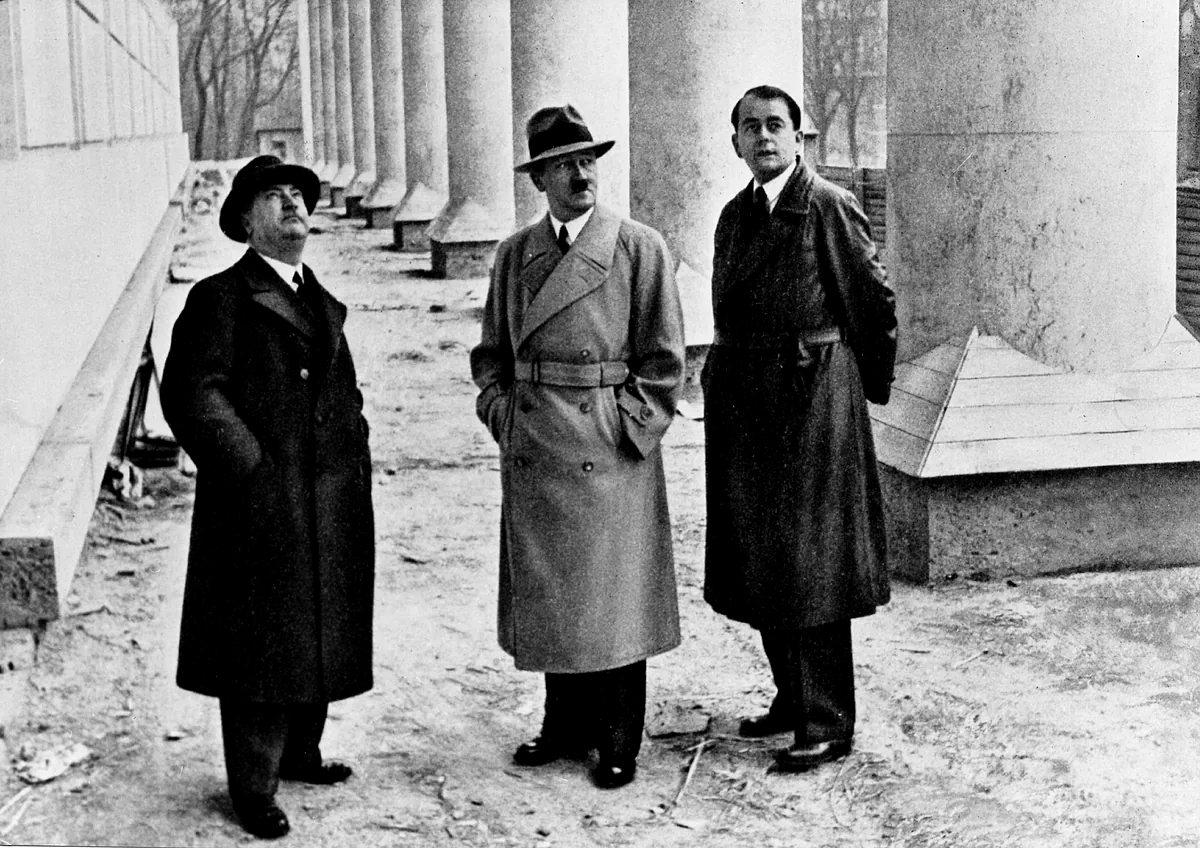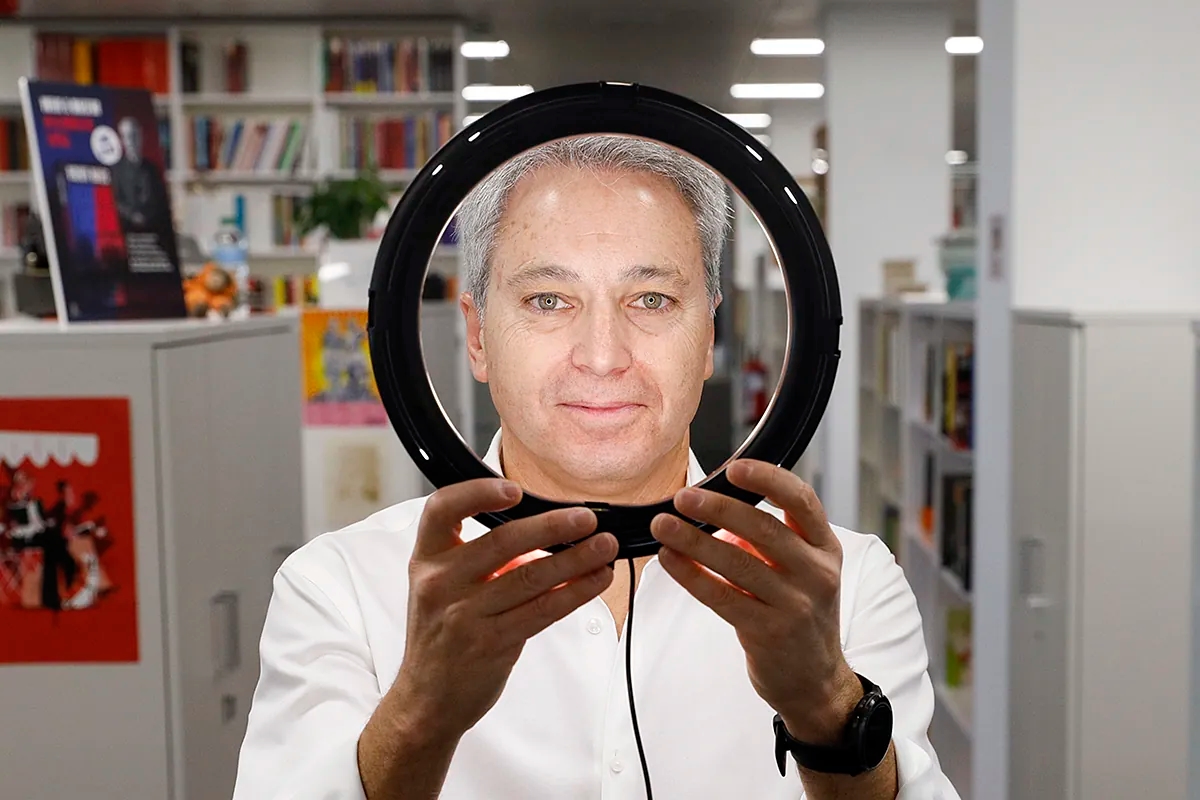Albert Speer, the 'good Nazi' who was the first king of fake news

Jean-Noël Orengo recalls that 25 years ago, when he read the Memoirs of Albert Speer , architect and former Minister of Armaments and War under Hitler, he was immediately fascinated by them, but he didn't know why. That wonder was the spark: after years of failed attempts to fictionalize events with invented characters, Orengo discovered that what interested him was not so much the Speer who built monuments for the Third Reich but "how, after the war, he transformed his story into what is perhaps the first, most radical autofiction ."
From this interrogation emerged The Führer's Unhappy Love (AdN), a counter-investigation in the form of a novel: what the author defines, bluntly, as "counterfiction." " I use the means of fiction to dismantle Speer's fiction, which presents itself as truth ." The book blends documentation, essay, and narrative to portray the architect who transformed the aesthetics of power into the most effective form of propaganda.
In a fictionalized love affair, as divided as any other—love at first sight, relationship, separation—Orengo transforms the architect into a symbolic figure: with his staging of Nuremberg, his play of light, and the monumentality of the masses, he "encoded the image of Nazism in our collective unconscious." Without his stage design, he says, "Nazism would not have had the same force."
The novel also explores how Speer was able to construct his best defense. At the Nuremberg Trials, the architect was "highly regarded because he was handsome, well-built, talented, and cultured. He wasn't like others, who seemed like lunatics or provocateurs." Ultimately, Speer secured a 20-year prison sentence instead of the death penalty received by other Nazi leaders.
Orengo points out the effectiveness of his argument: presenting himself as individually innocent while simultaneously assuming collective guilt. This strategy allowed Germans to recognize themselves in him: "They could say: 'I didn't work at Auschwitz, but I am collectively responsible because I participated in a regime that committed this.'" Orengo adds a judgment that runs throughout the book: "When an image is attractive, it ends up overriding the truth."
Speer's ability to shape a convenient truth connects, according to the French writer, with current phenomena: post-truth, viral narratives, and the fragmentation of collective narratives. The author argues that today we are "orphaned by religious narratives" and, in this void, political fiction has been reinforced. "There's an energy emitted by these stagings by characters like Speer that draws us in."
In short, for Orengo, the crux of the matter is that "ever since the beginning of time , we have preferred fiction, even if we don't fully believe it, to adhering to a reality that is a bit sad, gray, and limited ," he bluntly acknowledges. Hence, for Orengo, Speer is also "the prototype of fake news ." The parallels with current events appear unbidden. "There are no more political masses or uniforms, but there are influencers," says Orengo.
Although the book doesn't mention specific figures but rather a modus operandi, in short, Orengo names certain figures— Miley , Putin —to underline the continuity: the transition from messianic leader to media phenomenon. "Speer's was the same style that Trump , for example, used with the murdered influencer Charlie Kirk . The one used by everyone who will end up conveying what is said via social media," he says. "It's a great narcissistic experience where everyone gives their point of view, which is good, it's a form of direct democracy," he clarifies. "But since everyone gives their own story, it becomes very difficult to determine which is the most plausible."
In this context, the author believes the situation is especially worrying for the new generations beginning their education. "We see the difference with older generations, where there was still a relatively common foundation. Now, that consensus has become practically impossible."
In his opinion, movements, journalists, and creators contribute to a destabilization of the common foundations: "History is not written the same way in Madrid, Beijing, or Washington, and in the overlapping of hundreds of stories, versions coexist that are essentially incompatible." That's why he asserts, with a tone that mixes irony and alarm, that "reality surpasses fiction, which is why so much non-fiction is written these days."
Orengo doesn't propose moralizing art with his story, but he doesn't want to leave it without ethics either. "The territory of art is sometimes antisocial, but it's not without consequences." And he cites the example of Nabokov's novel Lolita : "It's a fascinating work, but unbearable in reality." His reflection points to the limits of storytelling: who has the right to tell a story, to control its truth? "When someone writes with serious commitment, they have the right to write about anything. Otherwise, we'd end up writing only about ourselves."
In this context, Speer's figure is a warning: an artist who writes about himself can lie better than anyone else. "Speer had the right to write about himself, but if no one contradicts him, his version is the only one that gets across," he insists.
The book closes with another contemporary echo. Orengo recalls that Speer designed his buildings with the ruins they would leave behind in mind, and draws a parallel with today's wars. "Schools, entire villages, infrastructure are destroyed, and then no one knows anything," he says. "All heads of state lie. The difference is in the scale." And he concludes with a bitter assertion: "Politics is the art of lying. Its truth is not uniting people, but separating them. Saying we're going to unite is a necessary fiction. But we continue to believe it, because without that fiction there wouldn't even be elections ." Speer's school.
elmundo




